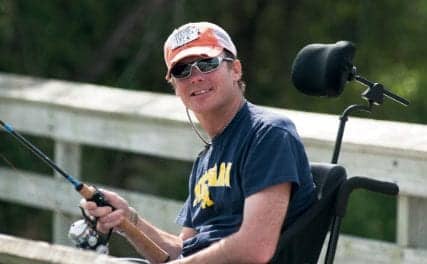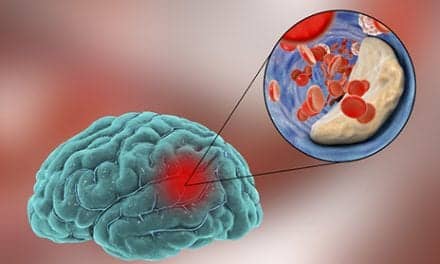NEW YORK (Reuters Health) – Findings from a new study indicate that a small percentage of children with ischemic stroke are receiving thrombolytic therapy even though it is not indicated for patients younger than 18 years of age — and the risks and benefits are unknown.
The rate of ischemic stroke in children has been estimated at 2 to 3 per 100,000, the authors note. Although this rate is much lower than in adults, the complications can be significant and, at present, evidence-based treatment guidelines are lacking. A number of studies have looked at thrombolysis in pediatric stroke patients, but few have characterized its use at a national level.
Dr. Nazli Janjua, from Long Island College Hospital in New York, and colleagues addressed this topic by analyzing data from the Nationwide Inpatient Sample, which included patients between 1 and 17 years who experienced a stroke from 2000 to 2003.
As reported in the June issue of Stroke, an estimated 2904 children suffered a stroke during the study period, including 46 (1.6%) who were given thrombolytic therapy. None of the children who received this therapy had a stroke-associated medical condition, whereas moyamoya disease, sickle cell disease, cardiac valvulopathy, and procoagulable conditions were noted in a number of children not treated with thrombolysis.
The average age of thrombolysis-treated patients was older than that of other patients: 11 vs. 9 years. In addition, all of the children given thrombolytic agents were male compared with a roughly even gender distribution in other stroke patients. The average hospital cost for the thrombolysis group was $81,800, more than double the cost incurred in other patients — $38,700.
Children treated with thrombolytic therapy were heightened risk for death and dependency, the findings suggest, but because data on stroke severity was lacking, it is possible that these children simply had more severe strokes to begin with.
"This original and provocative study…is the first approach to thrombolysis in children with acute stroke, and it proves the need for a randomized, controlled double-blind trial to check tPA efficacy and safety in this group of patients," Dr. Robert Belvis, from the Autonomous University of Barcelona in Spain, notes in a related editorial.




